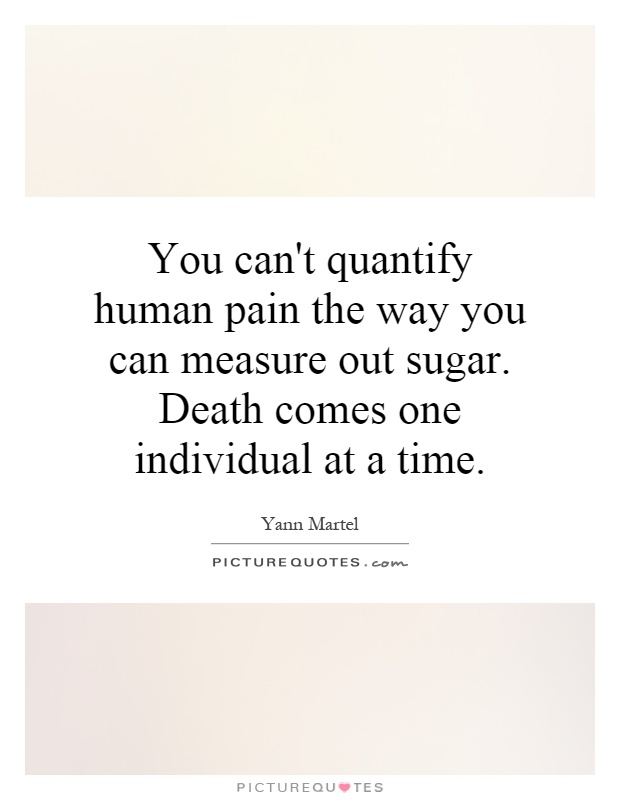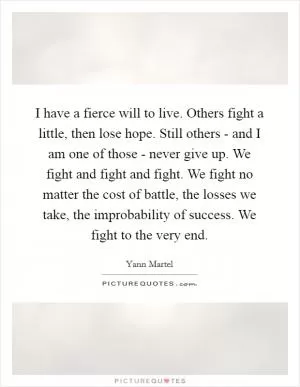You can't quantify human pain the way you can measure out sugar. Death comes one individual at a time

You can't quantify human pain the way you can measure out sugar. Death comes one individual at a time
In Yann Martel's novel "Life of Pi," the protagonist, Pi, experiences immense physical and emotional pain throughout his journey stranded at sea with a Bengal tiger. The quote "You can't quantify human pain the way you can measure out sugar. Death comes one individual at a time" resonates deeply within the context of Pi's struggles and the broader themes of the novel.Throughout the novel, Pi faces numerous challenges that test his physical and emotional endurance. From the loss of his family in a shipwreck to the constant threat of starvation and dehydration, Pi's pain is palpable and raw. Martel's vivid descriptions of Pi's suffering serve to highlight the ineffable nature of human pain. Pain is not something that can be neatly quantified or measured like sugar; it is a deeply personal and subjective experience that defies easy categorization.
Furthermore, the quote also speaks to the inevitability of death as a singular and individual experience. In the novel, Pi is forced to confront his own mortality on a daily basis as he struggles to survive in the harsh and unforgiving environment of the open sea. Death is not something that can be quantified or predicted with certainty; it comes for each individual in its own time and in its own way.
The quote also underscores the idea that pain and suffering are universal experiences that transcend language, culture, and background. Pi's struggles resonate with readers because they tap into the fundamental human experience of facing adversity and overcoming obstacles. Martel's exploration of pain and death in "Life of Pi" serves as a powerful reminder of the fragility and resilience of the human spirit.












 Friendship Quotes
Friendship Quotes Love Quotes
Love Quotes Life Quotes
Life Quotes Funny Quotes
Funny Quotes Motivational Quotes
Motivational Quotes Inspirational Quotes
Inspirational Quotes